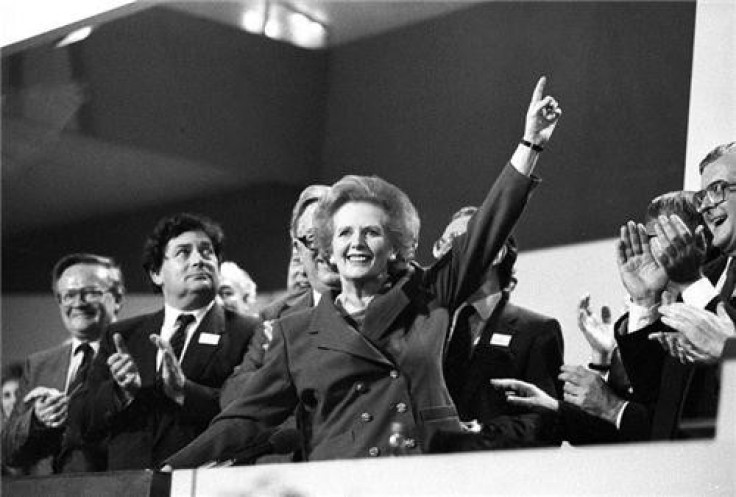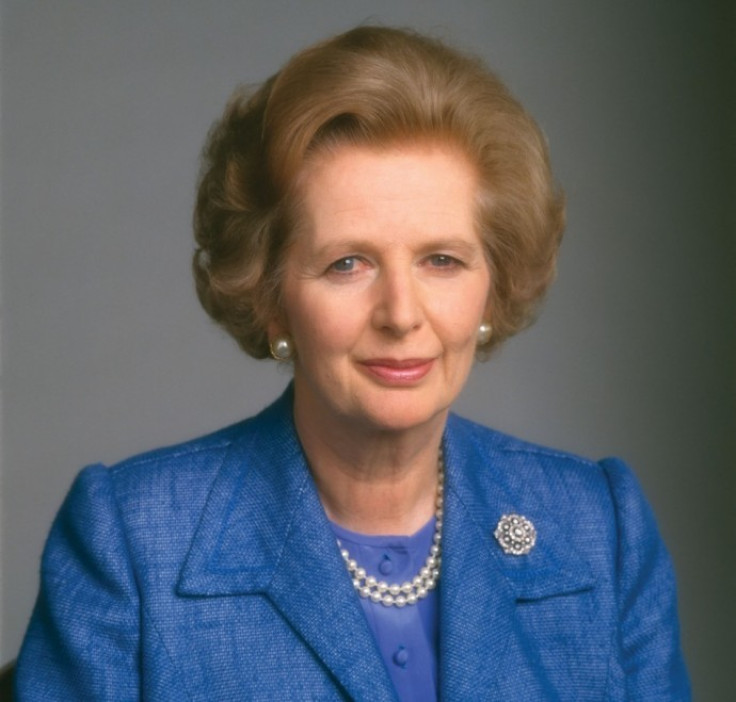Thatcherism a Debate That Rages on: Margaret Thatcher's Economic Legacy [VIDEO]

There's a certain ironic symmetry in the death of Baroness Thatcher coming on the 34<sup>th anniversary of the infamous "Winter of Discontent" but also amid perhaps the most significant debate since then over the role government and business in Britain.
Baroness Thatcher remains - without question - the single most polarizing figure in British public life. To her Conservative Party allies - and to many aboard - she will always be the "Iron Lady" who, by sheer force of political will and fierce personal belief, delivered the most ambitious and defining changes to Britain's creaking state-controlled economy.
To her enemies - legions of which also reside well beyond the United Kingdom's borders - she is the personification of a neo-liberal, free-market theology that systematically dismantled more than a century of hard-won victories that delivered social equality and dignity in the wake of the industrial revolution.
Her legacy, however, surely must be seen through the prism of both where the nation was when she was swept into power and where it finds itself at the news of her passing.
And there are many similarities: Britain is now, as it was four decades ago, engulfed in an economic angst that questions the very essence of what a nation - and its wealth creators - should be. The biggest changes to social support benefits such as welfare for at least a generation have been in place for less than a week and have already ignited passionate debate - and equally passionate protest - up and down the country. Growth prospects are bleak and unemployment, while tamer today than in the late 1970s, remains crippling, particularly for the young.
"Maggie, Maggie, Out, Out, OUT!!!"
It was a similar wave of pessimism that lifted the 54-year old Thatcher into office following the collapse of the Callaghan government in 1979 after a brutally cold winter defined by public sector strikes, searing inflation and the iconic images of uncollected rubbish in London's Leicester Square and unburied coffins in Liverpool's Speke factory.
Her principal economic strategy - to slow inflation, slash public spending and privatise state-owned industries - didn't immediately bear fruit. Her approval rating plunged to 23 percent in 1980 and an unpopular tax rise the following year nearly toppled her narrow 44-seat majority in the House of Commons.
By 1982, however, her programmes began to deliver: inflation slowed, the jobless rate began to stabilize and mortgage rates hit a decade low. The improvements were enough to earn a second term in office and it was from that base that Thatcher truly began her effort to reshape the British economy.
It began with the first - and perhaps defining - phase of what came to be known as "Thactherism": the privatization of public utilities and state-owned public housing, which collectively raised around £48bn. That was swiftly followed by the second, and far more controversial move - the infamous, and ultimately fatal - standoff with Arthur Scargill and the National Union of Mineworkers.
The year-long strike cost Britain billions, closed hundreds of mines and irrevocably damaged relations between the Conservative party and unionised workers around the country. But it also freed the nation from what many called the undemocratic influence of union leaders in British politics. It also, indirectly, led to the signature policy change of the Labour Party in 1994 that gave rise to the leadership of Tony Blair and the eventual New Labour project which guided Britain for more than thirteen years from 1997.
"Who Runs Britain?"
Fortunes ebbed and flowed during her 11 years in Downing Street - the longest of the 20<sup>th century - and her achievements were mixed, but the end result of her tenure was an indisputable success in pure economic terms: real GDP was 23.3 percent stronger when she left, employment and training had improved by 33.3 percent, inflation slowed from more than 20 percent to less than 5 percent and the top rate of tax more than halved from 83 percent to 40 percent.
The costs of her legacy and economic achievements, however, are still being debated today.
Many argue her dismissive - bordering on obsessive - attitude toward business regulation paved the way for the excess of financial sector crashes in 1987, 1992 and, most spectacularly, during the global credit crisis of 2008. Others suggest her desire to subdue union excesses led to the premature demise of Britain's manufacturing sector and the subsequent rise of a services-led economy that left the country susepctible to housing bubbles at home and a lack of competitiveness abroad.
Thatcher is said to have famously described her strident approach to union demands as a question of "who runs Britain?". Today, that question is still being debated, even if the central character in the original version - government - appears to be the only one remaining.
In a post-banking crisis Britain that is at present emerging from its own brutally cold winter characterised by some of grimmest economic performance in nearly a century, many are asking not who runs the country but rather "what should Britain be?".
If nothing else, the current debate is a testament to the power and the depth of the legacy the former Prime Minister left to the country she served for so many years.
READ:
Margaret Thatcher Obituary: Thatcherism Defined 20th-Century Politics and Protest
Margaret Thatcher Death: White House to Port Stanley - Tributes from Overseas
Margaret Thatcher Quote, Unquote: How the Iron Lady Defined a Political Ideology [VIDEO]
Margaret Thatcher Quotes: Online Tributes Pour in with Tebbit, Cameron and Mensch Leading the Way [VIDEO]

© Copyright IBTimes 2024. All rights reserved.






